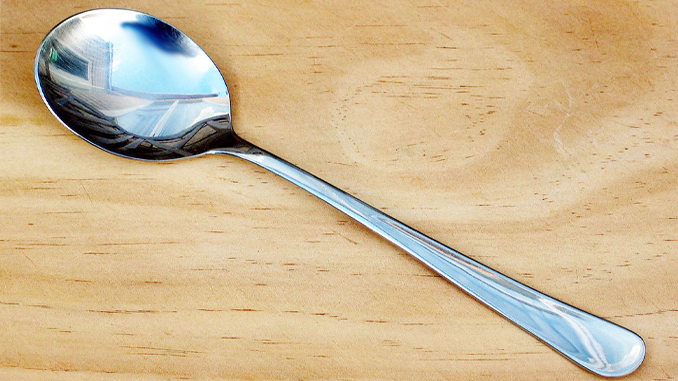
No, they don’t have anything to do with spoons. Although they could.
Spoonerisms are named after William Archibald Spooner, an Anglican priest whose slips of the tongue were not only frequent, but legendary.
As someone with a severe stutter at a young age (thankfully long since past), I can attest to the fact that verbal slips can arise from your mind thinking ahead of what you’re saying. In many cases they create stutters. For some they create what became known as “Bushisms”, where two words with similar meanings are melded into a new, incorrect term. With Reverend Spooner, it manifested as the transposition of syllables.
Some examples, from the U.K. Telegraph:
• At a wedding: “It is kisstomary to cuss the bride.”
• “Blushing crow” for “crushing blow.”
• “The Lord is a shoving leopard” (Loving shepherd).
• “A well-boiled icicle” for “well-oiled bicycle.”
• “I have in my bosom a half-warmed fish” (for half-formed wish), supposedly said in a speech to Queen Victoria.
• A toast to “our queer old dean” instead of to “our dear old Queen.”
• Upon dropping his hat: “Will nobody pat my hiccup?”
• “Go and shake a tower” (Go and take a shower).
• Paying a visit to a college official: “Is the bean dizzy?”
• “You will leave by the town drain.”
• When our boys come home from France, we will have the hags flung out.
• “Such Bulgarians should be vanished…” (Such vulgarians should be banished).
• Addressing farmers as “ye noble tons of soil”.
• “You have tasted a whole worm” (to a lazy student).
• “The weight of rages will press hard upon the employer.”
• And, the classic: “Mardon me padom, you are occupewing my pie. May I sew you to another sheet?”
So remember, if you wind up screwing up in a bit of public speaking, it would be curse.
Question of the night: What’s an uncommonly used word or two which you enjoy?
